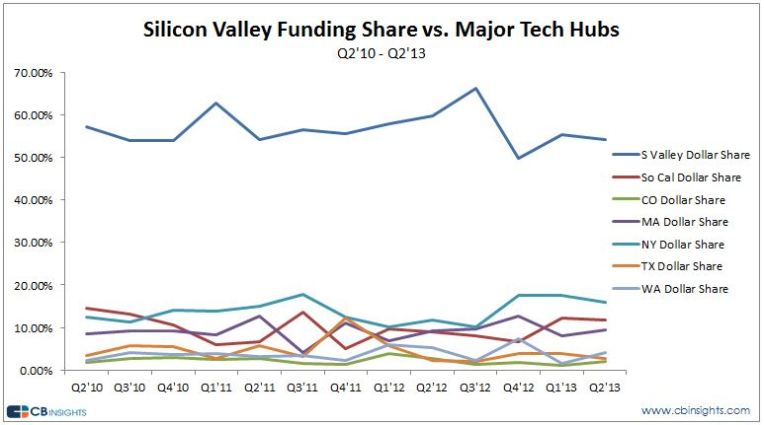This discussion began last week and has fostered some great comments and resources…
Offshore resources/Europe company for U.S. web development projects.
I’m a startup growth consultant who started a digital marketing + web development agency due to such high demand from my startup clients. I’ve used some local and some offshore resources and avoided larger outsourcing companies. I’ve found the best way to do this is to manage the projects daily.
I’m looking for suggestions on how to scale this using people in europe without adding too many “middle men”.
1. Work directly with engineers, no company involved.
2. They start by demoing their skills on my project at no cost for 1-2 days.
3. Hire them 8 hours at a time and review daily by skype, g hangout. I’ve been acting as project manager/dev manager.
4. work is mostly drupal, wordpress, seo and php/lamp.
People in the Philippines or India or eastern europe are very low cost – $7-10/hour.
I’d like to build a europe based high quality partner agency, but not sure how to build the trust required for both sides. I had a company in europe in the past and was very happy with the quality software we created.
Let me know what you think of this, and please feel free to connect.
Tom Nora
Comments
-
To start off you should focus on working with a company that offers you direct access to engineers and is willing to work as an extended branch for your team. They keep you involved even from the early stages of the value chain including selecting the right engineers and taking direction and input on the future technical growth plan for those engineers. Most of these offshore locations will offer you the leverage to scale as per your needs as per the ample availability of technical talent and a regular pipeline with many STEM students graduating every term. You can also consider working with freelancers but providing them with the right infrastructure and support mechanism needed to produce work at par with engineers stateside would be difficult for you to manage. Also, it is not about the engineering talent only! But other support function that go with that like HR and Administrative support. For this you should focus on finding that right company which is willing to offer you transparency and keeps you in charge of your team. I would also want to mention here that you would also have to focus on building a culture in your team that represents your company’s persona with which your offshore resources can relate to and understand. This will allow you to bring more and more value out of your offshore resources.
-
If you can manage it, rather than having your unit of workforce as a person (and definitely not a “resource”, that term should be outlawed), try having your unit of workforce the “team” and have relatively stable teams that have learned to work with each other, for whom you know their strengths and weaknesses, and to whom you might be able to augment with people strong in specific skills where the work requires skills in an area that they are weak.
-
Daily reports via skype are good way to check a person skills for good times, how do you test people in bad times (assuming before they occur).
Secondly I’d like to ask why did you stoped your company back in Europe?
-
The good thing is, you are using Skype and hangout. There is nothing close to that.
-
The way I’ve done it when I wanted to grow an organization in China, was to start with a centralized model where I have local reck leads responsible for offshore engineers.
While working on a release, we made sure we are building their skills in all possible roles (Dev, QA, Product Owner, Technical writers etc.).
Our strategy was to move to a distributed model where the entire scrum team works together offshore. Once we got that to work (It took us 1-2 releases) we were able to scale up quickly and grow the offshore organization significantly.
Startup Whisperer, Web Market Development
Ron, Thanks for the info. This started as a tiny project, not meant to grow. In the past I’ve acquired an offshore company in China after working together for about a year, that worked well, gave us the chance to get to know each other and protected our IP.
I guess we’ll see where this one goes.
-
million dollar question. facing the same issues with finding quality and trustworthy mates that have a common goal rather than count minutes and cents. still have hope. diamond in the rough.
-
I got to agree with you but partially. I believe quality is not limited to price or a part of world. You can find great resources in India or in any part of the world. Its like hiring a resource once you hire a great resource you never need to worry about it. So my suggestion is to find a good agency that can work with you and check them before starting work with them by giving them some small piece of work and at the price does not matter but quality does mater.
-
Startup Whisperer, Web Market Development
Abbas and Imran, Thanks for the info. This started as a tiny project, not meant to grow. In the past I’ve acquired an offshore company after working together for about a year, that worked well, gave us the chance to get to know each other and protected our IP.
I guess we’ll see where this one goes. Lot’s of suggestions to go ahead and try to build something.
Yes Abbas, that’s the problem, many agencies don’t care enough about the buisness/product. Not their fault, but one of the reasons I’ve avoided that route.
-




Hello Tom, I can answer your questions. I have been able to successfully scale three different software development service centers offshore. You are right about the need for TRUST. You absolutely have to have a person in each service center that you TRUST. You have to know that they have your back in good times and bad times. If you have that one person in each center, then you can easily scale your service center around them and go as high as you want to go. You will need managers, top notch infrastructure and of course eventually an HR team for recruiting, policy enforcement, policy making, benefits coordination and general HR duties.
However, the first step is getting that one person you can trust. I have experience in doing this and can give you more insight if you wish.